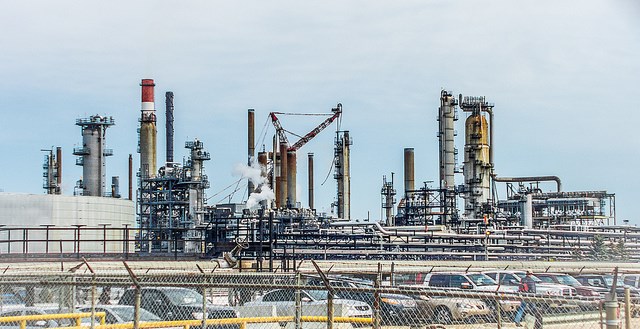The Edmonton region has worse air than Toronto, suggests a recent study, but local air quality scientists say coal power might not be entirely to blame. The Canadian Association of Physicians for the Environment (CAPE) released an analysis this week that showed how air pollution in terms of fine particulate matter was significantly worse in Edmonton than it was in Toronto despite having a fifth of its population.
The Edmonton region has worse air than Toronto, suggests a recent study, but local air quality scientists say coal power might not be entirely to blame.
The Canadian Association of Physicians for the Environment (CAPE) released an analysis this week that showed how air pollution in terms of fine particulate matter was significantly worse in Edmonton than it was in Toronto despite having a fifth of its population.
The analysis found that levels of PM2.5 pollution in downtown Edmonton exceeded national ambient air quality standards for three of the last four measurement periods and were about 24 per cent higher (about 4.7 micrograms per cubic metre more) than those in downtown Toronto from 2011 to 2013.
PM2.5 refers to tiny particles smaller than 2.5 microns across. These particles have been linked to lung and heart disease in people.
“Toronto has always been thought of as The Big Smoke and having bad air,” said Joe Vipond, an emergency physician in Calgary and spokesperson for the report.
But this report shows how particulate matter levels in Toronto have dropped significantly since 2003-2005 (particulate matter is measured on a three-year average). Toronto had about 53 smog alert days in 2005 and, for the first time, zero in 2014, Vipond noted.
That's because Toronto phased out its coal-fired electricity plants in the last decade, Vipond said. Alberta, meanwhile, has been building more coal plants and has seen its particulate pollution rise as a result.
Hundreds of studies have shown that exposure to particulate matter increases your risk of premature death and illness due to heart and lung disease, Vipond said.
“Even small amounts cause effects,” he says.
“The lower you go, the better off you are.”
The report blames Edmonton's elevated particulate levels on the region's use of coal power and calls for an accelerated phase-out of it. The Alberta Liberals and NDP support this and Premier Jim Prentice has expressed an interest in it, Vipond notes.
Complex problem
The capital region does have a particulate matter problem – levels of it exceeded national air quality standards in 2008-2010 and 2009-2011, causing Alberta Environment to order the region to come up with a plan to address the pollutant. That plan came out in January and formed the basis of the CAPE study.
David Spink, a St. Albert air quality analyst, helped write that plan and reviewed the CAPE study.
While coal plants definitely contribute to particulate matter around Edmonton when the wind blows the right way, Spink says we currently don't know if they're the biggest source of it – air quality studies have yet to nail down a smoking gun for the pollution.
“It's entirely possible that the major sources could be automobiles,” he notes.
Warren Kindzierski, a professor of environmental health at the University of Alberta who studies air quality, agrees, noting that there are scores of industrial sites producing fine particulate matter in Edmonton.
“The coal-based sources are too far away.”
While Edmonton definitely has worse fine particulate pollution than Toronto, that's partially because of differences in the measurement systems used by the two cities, Spink says. We've also had more temperature inversions and forest fires in recent years than normal, both of which pushed our numbers up.
“We don't know what the contribution of coal-fired power plants is, but we know it is a contributor,” Spink says.
Edmonton could see some health benefits from phasing out coal power, but would also get them by installing better air scrubbers on those plants, Spink says.
A phase-out would also take a bite out of the province's greenhouse gas emissions, he noted. Coal power produces about as much greenhouse gas per year in Alberta as half the cars in Canada, the Pembina Institute reports.
Cape.ca has more on this report.
